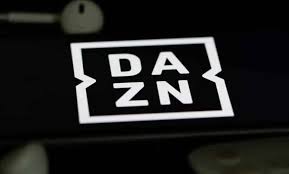Understanding the DAZN Lawsuit: A Complete Breakdown
The DAZN lawsuit has become a hot topic in the sports and streaming sector, triggering legal and business issues worldwide. As DAZN continues to extend its footprint in sports broadcasting, the recent lawsuit has highlighted its practices, alliances, and legal requirements.
In this piece, we take a deep dive into what the DAZN lawsuit is, the parties involved, the possible ramifications, and what it might portend for the future of sports streaming.
What is the DAZN Lawsuit?
DAZN lawsuit means a court case between DAZN, the international sports streaming service, and some other party—most commonly a sports rights owner, distributor, or rival. The type of case can differ, from breach of contract, licensing rights disputes, to anticompetitive practices.
This DAZN lawsuit has raised eyebrows with the platform’s growing dominance and foray into top sports leagues such as boxing, football, and MMA. It is a reflection of the intensifying tensions in the high-stakes universe of digital sports media. Do you know about Arias Agencies Lawsuit.
Major Issues Behind the DAZN Lawsuit
There are various reasons why the DAZN lawsuit has emerged, including:
- Contract Disputes: Conflict over streaming rights or service terms.
- Payment Issues: Delay or default in making payments.
- Content Rights Ownership: Disputes about ownership or control of certain sports broadcast rights.
- Anti-Competition Claims: DAZN’s market practices potentially infringing fair competition rules.
- All these factors explain why the DAZN lawsuit is increasingly popular both in legal and media communities.
Consequences of the DAZN Lawsuit for the Streaming Sector
The DAZN lawsuit may have profound ripple consequences across the whole sports streaming market:
- Loss of Consumer Confidence: Subscribers may be reluctant to sign up if the stability of the platform is in doubt.
- Live Event Delays: Legal limitations may hold up planned broadcasts or impact content availability.
- Monetary Fines: A loss for DAZN could result in enormous fines or settlement amounts.
- Industry Trend: The decision in the DAZN case could shape future legal structures for digital streaming.
Legal Analysts Opine on the DAZN Lawsuit
According to several legal analysts, the DAZN lawsuit could set new benchmarks in media law. If DAZN is found guilty of contract breach or rights infringement, it may trigger regulatory scrutiny in other regions where it operates.
Legal professionals emphasize that businesses like DAZN must strictly adhere to licensing laws and ensure full transparency in their agreements, especially when dealing with international broadcasters.
What’s Next for DAZN After the Lawsuit?
In spite of the current DAZN lawsuit, the organization will likely continue its global operations, possibly under stricter regulations or modified strategies. The management at DAZN might have to:
- Re-assess its legal and business agreements
- Invest in risk management
- Enhance stakeholder communication
- Enhance customer service during this period of uncertainty
The DAZN lawsuit is a wake-up call not only for DAZN, but for the whole streaming industry to put legal compliance and ethical collaborations first.
Conclusion: Why the DAZN Lawsuit Matters
Whether you’re a subscriber, an investor, or just an industry watcher, the DAZN lawsuit is more than a legal matter—it’s a reflection of the changing issues in digital sports broadcasting. Following this lawsuit closely will keep you ahead of the curve in terms of understanding where law and technology meet in the world of sports.
As the news develops, the DAZN lawsuit will keep telling the story of streaming rights, platform duty, and legal responsibility in the information age.






One thought on “DAZN Lawsuit Explained: Key Facts, Impacts, and What’s Next”